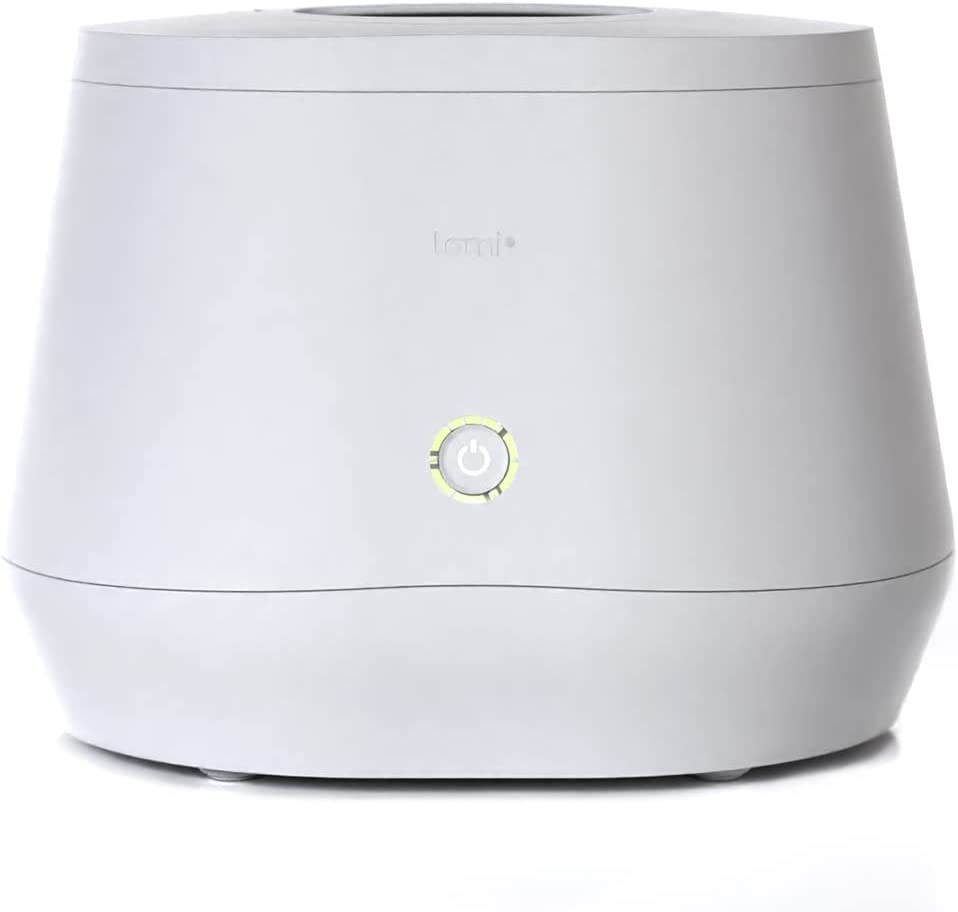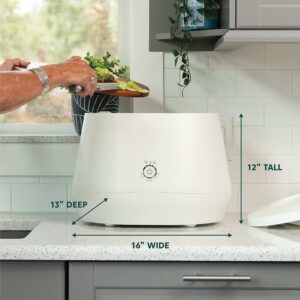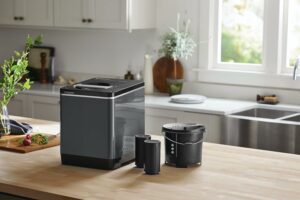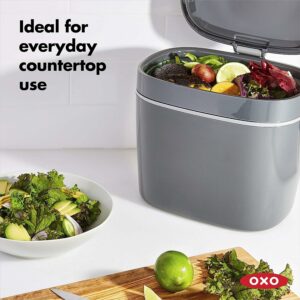Effortless Sustainability: Discover the Best Kitchen Compost Bins
Introduction:
Living sustainably has become an increasingly important aspect of our lives.
As we strive to reduce our carbon footprint and make environmentally conscious choices, managing our food waste is one area where we can make a significant impact.
Kitchen compost bins offer a convenient and efficient solution for transforming organic waste into nutrient-rich compost, enriching the soil and supporting plant growth.
In this article, we will explore the world of kitchen compost bins, highlighting the factors to consider when choosing one and reviewing the top picks in the market.
Get ready to embark on a journey of effortless sustainability.
Provo Green Products is your reliable source for discovering sustainable products that positively impact your life and the environment.
With extensive experience in manufacturing, trades, and construction, Provo Green Products thoroughly researches each product before providing accurate and up-to-date information on its sustainability.
You can trust that you’re getting trustworthy insights to make informed choices whether you’re looking for solar products, electric bikes, eco-friendly products, renewable energy solutions, etc.
Provo Green Products is your go-to destination for finding the right green products for your lifestyle.
Disclosure: We may earn a small commission if you click on one of our links.
This does not affect the pricing of the product whatsoever.
Understanding Kitchen Composting:
Before we delve into the best kitchen compost bins available, it’s essential to understand the concept of composting and its environmental benefits.
Composting is a natural process involving decomposing organic materials into nutrient-rich compost, such as fruit and vegetable scraps, coffee grounds, and eggshells.
This compost can then enrich garden soil, promote plant growth, and reduce the need for chemical fertilizers.
Kitchen compost bins play a crucial role in composting by providing a dedicated space to collect and store food scraps.
They help contain odors, prevent pests, and facilitate the decomposition process.
By diverting organic waste from landfills, kitchen compost bins reduce greenhouse gas emissions and conserve landfill space.
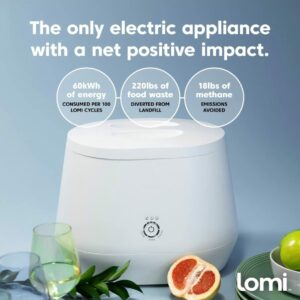
Factors to Consider When Choosing a Kitchen Compost Bin:
When selecting a kitchen compost bin, several factors should be considered to ensure its effectiveness and convenience. Here are some key aspects to keep in mind:
- Size and capacity: Consider the volume of food waste your household generates to determine the appropriate bin size. Smaller bins are suitable for individuals or small families, while larger bins may be required for households with higher food waste production.
- Material and durability: Look for bins made of durable and eco-friendly materials such as stainless steel, ceramic, or high-quality plastic. These materials are easy to clean, odor-resistant, and long-lasting.
- Odor control features: Opt for compost bins with effective odor control mechanisms such as airtight lids, carbon filters, or charcoal liners. These features help prevent unpleasant smells in your kitchen.
- Ease of use and maintenance: Choose a bin that is easy to use, with features like a secure lid, convenient handles, and a removable inner liner or bag for easy emptying and cleaning.
- Aesthetics and design options: Consider the design and aesthetics of the bin, as it will be a visible part of your kitchen. Look for options that match your kitchen decor and personal style.
Expert Tips for Effective Kitchen Composting:
To ensure successful kitchen composting, here are some expert tips to keep in mind:
- Proper compost bin placement: Place your compost bin in a convenient location in your kitchen, such as under the sink or on the countertop. Ensure it’s easily accessible for depositing food scraps, but consider factors like ventilation and odor control.
- Balance carbon-rich and nitrogen-rich materials: Achieve a balanced compost by combining carbon-rich “brown” materials like dry leaves or shredded paper with nitrogen-rich “green” materials such as fruit and vegetable scraps. Aim for a ratio of roughly three parts brown to 1 part green.
- Manage moisture levels: Compost should be moist but not soggy. Monitor the moisture content regularly and add water or dry materials to maintain a damp but not wet environment. This helps facilitate the decomposition process.
- What to avoid putting in a kitchen compost bin: Certain items should be excluded from your kitchen compost bin, including meat, dairy products, oily foods, and pet waste. These can attract pests, emit strong odors, and disrupt the composting process. Stick to plant-based food scraps and non-greasy kitchen waste.
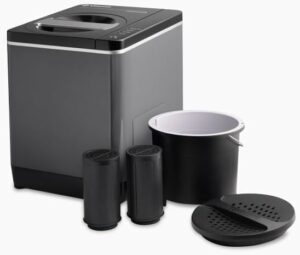
Maintaining and Troubleshooting Your Kitchen Compost Bin:
To ensure the optimal performance of your kitchen compost bin, it’s crucial to establish a maintenance routine and address any issues that may arise.
Here are some tips for maintaining and troubleshooting your compost bin:
- Regular cleaning and maintenance routines: Clean your compost bin regularly to prevent the buildup of odors and potential contamination. Wash the bin with warm soapy water and rinse thoroughly. Consider using a compostable liner or a removable inner bucket for easy cleaning.
- Common issues and solutions: If you experience unpleasant odors, it could indicate improper balance or excess moisture. Adjust the compost mixture by adding more brown materials or dry leaves. If pests are a problem, ensure your bin is adequately sealed and consider using airtight lids or adding a layer of soil or newspaper to deter pests.
- Troubleshooting tips for efficient composting: If your compost takes longer to decompose or appears stagnant, consider turning the bin’s contents with a compost fork or shovel to introduce oxygen and promote decomposition. Additionally, ensure the compost pile is adequately layered with brown and green materials.
User Experiences and Testimonials:
To gain further insight into kitchen compost bins’ effectiveness and user satisfaction, read some user experiences and testimonials.
Real-life feedback from individuals who have used these bins can provide valuable insights and help you make an informed decision.
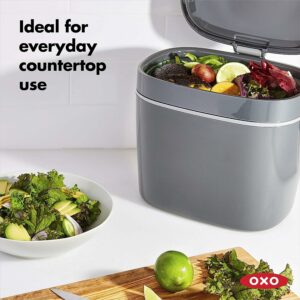
Conclusion:
Effortless sustainability can be achieved by using the best kitchen compost bins available.
By diverting organic waste from landfills and creating nutrient-rich compost, these bins contribute to a greener and more sustainable future.
Consider the factors discussed, compare the top picks, and follow expert tips to find the perfect compost bin for your kitchen.
Together, let’s embrace the journey towards effortless sustainability and make a positive impact on our environment.
Stay in Touch!
I’am a dedicated entrepreneur with many years of experience and an integrity-driven individual who is highly motivated to succeed. Leveraging extensive expertise in manufacturing, construction, and various trades, we can provide a solid foundation for sustainable living. Our meticulous research process guarantees that our information about each product is precise and current, allowing you to make informed decisions. A deep understanding of business operations empowers me to consistently implement improvements that result in ongoing success. Visit site.

